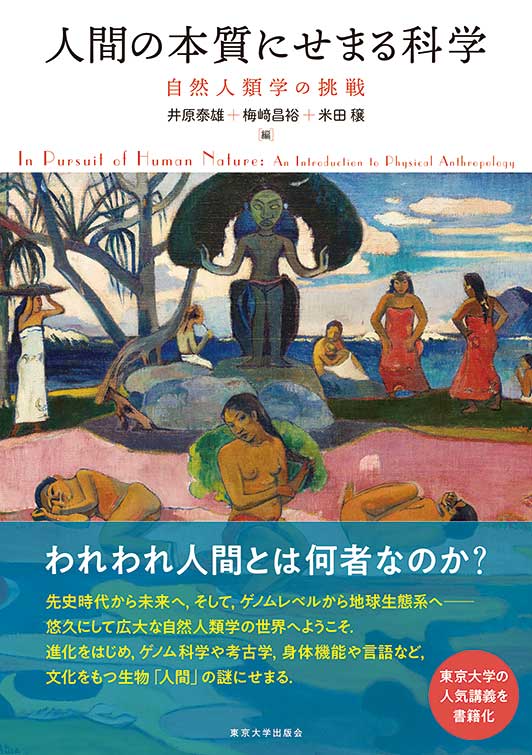Disclaimer: machine translated by DeepL which may contain errors.
The Science of Human Nature
Yasuo Ihara, Associate Professor, Department of Biological Sciences

| Edited by Yasuo Ihara, Masahiro Umezaki and Minoru Yoneda |
| Science into the Essence of Human Nature The Challenge of Natural Anthropology" edited by Yasuo Ihara, Masahiro Umesaki and Yutaka Yoneda |
| The University of Tokyo Press (2021) |
| isbn 978-4-13-062228-8 |
What is the evolutionary path of the present human species, Homo sapiens? How did the diversity among the world's peoples arise? How did we come to have special characteristics, such as culture, language, and free will, that are not found in other animals? The field of study that addresses these questions of human evolution using the scientific method is called natural anthropology (or biological anthropology).
The University of Tokyo, mainly in the Department of Biology, Faculty of Science, offers a course on natural anthropology for first- and second-year students, entitled "Human Science: The Science of Human Nature. This book is an up-to-date review and textbook of natural anthropology for university students, which was developed from these lectures. Part I of the four-part book describes the evolutionary path from early humans as a type of African ape to present-day humans. Part II describes anthropological research based on genomics, which has developed rapidly in recent years, and Part III deals with the adaptive design of the human body. Part IV will focus on language evolution, archaeology, and cultural anthropology.
Third-year students entering the Department of Biology who choose the "A" curriculum will study such natural anthropology in greater depth. (The other curriculum, B, focuses primarily on basic biology.) In the second building of the Faculty of Science on the Hongo Campus, five laboratories belonging to the Department of Biological Sciences of the Graduate School of Science are conducting research in morphological anthropology, genomic anthropology, evolutionary anthropology, human evolutionary biomechanics, and human genome diversity, respectively.
Published in the November 2021 issue of Faculty of Science News


